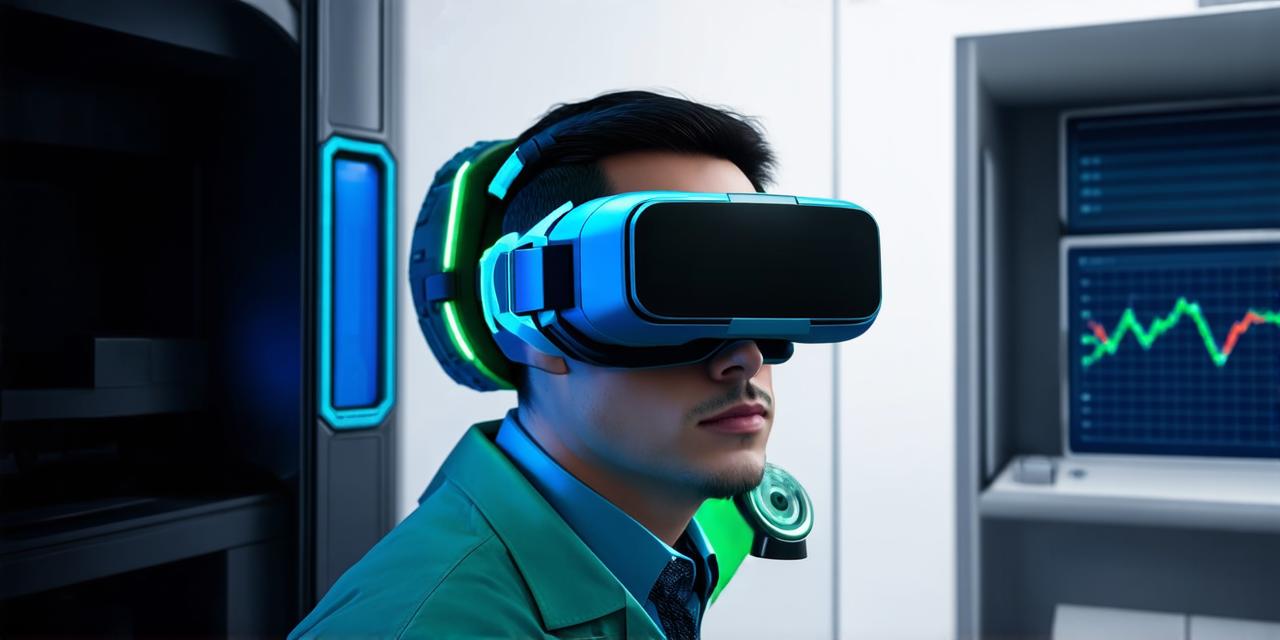Virtual reality (VR) technology has been rapidly evolving in recent years, with significant attention given to its potential benefits in various fields, including education, healthcare, entertainment, and more. VR technology provides an immersive experience that allows users to interact with a simulated environment in a way that can enhance learning outcomes, improve medical procedures, and provide engaging experiences in entertainment.
In this article, we will explore the causes and consequences of memory lapses in VR research conducted by Radvansky and Copeland. We will also discuss some factors contributing to these memory lapses, as well as real-life examples of their occurrence. Finally, we will address frequently asked questions (<h3>FAQs</h3>) to provide a comprehensive understanding of the topic.
Memory Lapses in VR Research
Radvansky and Copeland’s study found that participants who used virtual reality (VR) technology for spatial navigation tasks exhibited more memory lapses than those who performed the same task using traditional computer-based simulations. The study involved 65 participants who completed both VR and computer-based spatial navigation tasks.
According to the researchers, the memory lapses observed in the VR group were primarily due to a phenomenon called “spatial disorientation,” which occurs when individuals become confused about their surroundings or direction in space. This confusion can lead to memory lapses and affect cognitive performance.
Furthermore, Radvansky and Copeland found that participants who used VR technology for spatial navigation tasks performed significantly worse than those who performed the same task using traditional computer-based simulations. The researchers attributed this to a lack of contextual cues in the VR environment, which can impair spatial awareness and lead to memory lapses.
Factors Contributing to Memory Lapses in VR Research
There are several factors that may contribute to memory lapses in VR research. One such factor is the immersive nature of VR technology. While VR can provide a highly immersive experience, it can also disorient individuals and cause them to lose track of time and spatial orientation. This can be particularly challenging in tasks that require precise spatial awareness and navigation.
Another factor is the lack of contextual cues in the VR environment. Traditional computer-based simulations often provide visual and auditory cues that can help users navigate and orient themselves in space. However, VR environments may not always provide these same cues, which can make it more difficult for individuals to maintain spatial awareness and remember information.
In addition, the complexity of VR technology can also contribute to memory lapses. VR systems require a significant amount of processing power, which can cause delays in response times and lead to cognitive overload. This cognitive overload can impair memory and affect cognitive performance.
Real-life Examples of Memory Lapses in VR Research
One real-life example of memory lapses in VR research is the use of VR for medical professional training. While VR technology has shown promise in improving surgical skills and reducing errors, some studies have suggested that medical students may experience memory lapses while using the technology for training purposes.
In a study published in the journal BMJ Quality & Safety, researchers found that medical students who used VR for surgical training were more likely to make mistakes than those who received traditional training. The researchers attributed these mistakes to a lack of contextual cues in the VR environment and cognitive overload caused by the complexity of the technology.
Another real-life example is the use of VR for gaming. While VR games can provide an immersive and engaging experience, some studies have suggested that gamers may experience memory lapses while using the technology.
In a study published in the journal Computers & Education, researchers found that gamers who used VR for first-person shooter games were more likely to experience memory lapses than those who played traditional computer-based games.
FAQs
<h4>Q: What are some common causes of memory lapses in VR research?</h4>
Memory lapses in VR research can be caused by spatial disorientation, lack of contextual cues, and cognitive overload due to the complexity of VR technology.
<h4>Q: How can memory lapses in VR research be mitigated?</h4>
Memory lapses in VR research can be mitigated by designing VR environments with contextual cues, reducing the complexity of VR systems, and providing training on how to use VR technology effectively.
<h4>Q: What are some real-life examples of memory lapses in VR research?</h4>
Memory lapses in VR research can occur in medical professional training and gaming, among other applications of VR technology.
Summary
In conclusion, memory lapses are a common issue in VR research, particularly in tasks that require precise spatial awareness and navigation. While VR technology has shown promise in enhancing cognitive performance, it is important to be aware of the factors that may contribute to memory lapses and take steps to mitigate their impact. By understanding these factors and implementing best practices for VR design and training, we can harness the power of this emerging technology while minimizing its potential risks.
